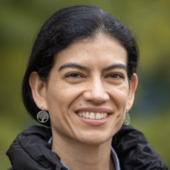


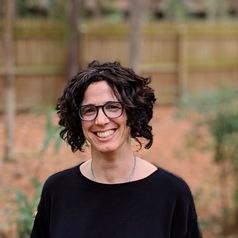
Flora Cassen
Chair and Associate Professor of Jewish, Islamic, and Middle Eastern Studies, Washington University in St Louis
Flora Cassen was born and grew up in Antwerp, Belgium. She went to college in Brussels and studied law and history at the Free University of Brussels. She moved to New York in 2000 to continue her studies at NYU, earning a PhD in Jewish History in 2008. She has taught European and Jewish history at the University of Vermont, the University of North Carolina at Chapel Hill and now at Washington University in Saint Louis, where she is also the Chair of the Department of Jewish, Islamic, and Middle Eastern Studies.
Her book Marking the Jews in Renaissance Italy: Politics, Religion, and the Power of Symbols was published by Cambridge University Press in 2016. It tells the history of the yellow badges or hats that Jews were forced to wear in Italy during the fifteenth and sixteenth centuries. Her book offers a reflection on the power of discriminatory signs and explains where Renaissance anti-Judaism came from and what it meant to Italian Jews and Christians. She has published articles in flagship academic journals such as the Journal of Early Modern History, the Jewish Quarterly Review, the Association for Jewish Studies Review, and in collections of essays. Her articles together with the book form a body of work that explores diverse facets of early Modern Jewish life (ranging all the way from anti-Judaism and dress to travel, spying, and food) in Italy and the Spanish Empire. In addition to her academic work, she has been writing columns for broad public audiences on the subject European antisemitism.
Less ![]()

Flora Zhang
Master of Public Health Student, University of Toronto
Flora is an enthusiastic Master of Public Health student at the University of Toronto, with a unique background spanning outpatient clinical settings, academia, non-profit organizations, to federal government.
Flora currently works within the Office of Nutrition Policy and Promotion at Health Canada, wherein she contributes to the research, analysis and synthesis of literature on food, nutrients and health which inform Health Canada’s nutrition policy and programming needs. She was previously a dietetic intern at the Coalition for Healthy School Food.
Flora is on the path to becoming a Registered Dietitian who will be able to advocate for health equity through culturally sensitive, inclusive, and evidence-informed approaches to improve the quality of life of equity-deserving populations.
Less ![]()

Florence Ashley
Assistant Professor, Faculty of Law and John Dossetor Health Ethics Centre, University of Alberta
Florence Ashley is an Assistant Professor at the Faculty of Law and member of the John Dossetor Health Ethics Centre. An award-winning transfeminine jurist and bioethicist who moves through academia using a profoundly transdisciplinary approach, Florence conducts broad-ranging research on issues faced by transgender people in the legal and healthcare systems. Florence holds BCL/JD degrees and an LLM (Bioeth) from McGill University and received their SJD from the University of Toronto. In 2019-2020, they served as the first openly transfeminine law clerk at the Supreme Court of Canada in the chambers of Justice Sheilah Martin.
Florence is the author of Banning Transgender Conversion Practices: A Legal and Policy Analysis (UBC Press, 2022; foreword by UN Independent Expert Victor Madrigal-Borloz). They have published over 30 refereed articles and chapters in journals including the University of Toronto Law Journal, the NYU Review of Law & Social Change, Nature, the Journal of Medical Ethics, the Canadian Medical Association Journal, Perspectives on Psychological Science, and MIND. Their work has been cited by the Supreme Court of Canada, the United Nations Independent Expert on Sexual Orientation and Gender Identity, and the World Professional Association for Transgender Health standards of care.
Florence is a frequent contributor to public conversations on feminist and LGBTQ issues, penning op-eds and offering their expertise to journalists. They are a founding fellow of the Centre for Applied Transgender Studies and sit on the editorial board of its flagship Bulletin of Applied Transgender Studies. Florence is a member of the Law Program Committee of the Women’s Legal Education and Action Fund (LEAF) and of the National Council of the Canadian Civil Liberties Association (CCLA).
Less ![]()
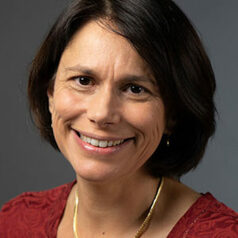
Florence d'Alché-Buc
Chair professor, Télécom Paris – Institut Mines-Télécom
Avant de rejoindre Télécom Paris en 2014, Florence d’Alché-Buc était professeure à l’Université d’Evry, titulaire d’une ATIGE et directrice adjointe du laboratoire IBISC. Elle a initié et porté le programme Challenges au sein du réseau d’excellence européen PASCAL (2004-08) et est depuis 2017 responsable scientifique du Labex Digicosme. Ses recherches portent sur l’apprentissage statistique, l’inférence de réseaux, la prédiction structurée et la modélisation de systèmes dynamiques.
Elle est titulaire, depuis janvier 2019, de la chaire industrielle de recherche et d’enseignement Data Science and Artificial Intelligence for Digitalised Industry and Services.
À partir de septembre 2021, elle est responsable du département Images, Données, Signal.
Elle est auteure de plus de 80 publications dans des journaux ou conférences internationales.
Less ![]()
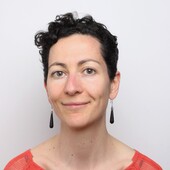
Florence Débarre
Directrice de recherche CNRS, chercheuse en biologie évolutive, Sorbonne Université
Less ![]()
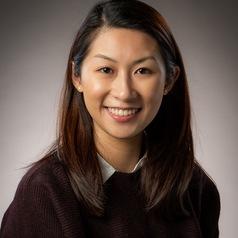
Florence Leung
Postdoctoral Research Assistant, University of Bath
I am a Postdoctoral Research Assistant in the Department of Psychology at the University of Bath. My general research interests lie in social cognitive processing (e.g., emotion recognition and priming) and quality of life among autistic individuals across the lifespan.
Less ![]()
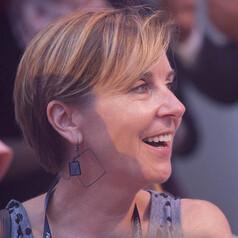
Florence Martin
Dean John B. Van Meter Professor of French Transnational Studies, Goucher College
Florence Martin is the Dean John B. Van Meter Professor of French Transnational Studies at Goucher College. She has published internationally on Maghrebi and French cinema. Her most recent authored publications include Farida Benlyazid and Moroccan Cinema (Palgrave MacMillan, 2024) Moroccan Cinema Uncut: Decentred Voices, Transnational Perspectives, co-authored with Will Higbee and Jamal Bahmad (EUP, 2020), and Screens and Veils: Maghrebi Women’s Cinema (IUP, 2011).
Less ![]()
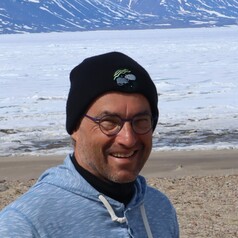
Florent Domine
Professeur, chimie, Université Laval
Florent Domine est professeur associé au département de chimie et directeur de recherche au CNRS, dans l'unité mixte Takuvik créée par le CNRS et l'Université Laval. Ses travaux portent sur le climat dans les régions arctiques et boréales. Il étudie notamment les interactions entre végétation, neige, pergélisol et climat, et cherche à quantifier les nouvelles rétroactions climatiques que ses recherches découvrent.
Less ![]()
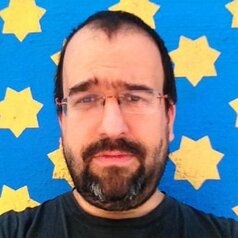
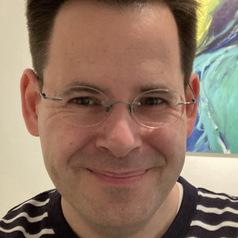
Florian Stadtler
Lecturer in Literature and Migration, University of Bristol
My main research interests lie in colonial and postcolonial literatures and film, especially South Asian writing in English and the work of Salman Rushdie, British South Asian history, literature and film, Indian popular cinema and its representation in South Asian fiction. More broadly I am interested in twentieth-century and contemporary literatures and the development of the novel.
My monograph, Fiction, Film and Indian Popular Cinema: Salman Rushdie's novels and the Cinematic Imagination highlights the way in which Rushdie draws on the conventions, style and politics of Indian Popular Cinema in his exploration of the postcolonial subcontinent and the South Asian diaspora in fast-changing economic, social and global contexts.
I have also published extensively on South Asian British history, including the case of Udham Singh, Aubrey Menen, South Asian soldiers in the First and Second World Wars, and South Asian seafarers. I have edited special issues for Wasafiri: The Magazine of International Contemporary Writing - India in Britain: Cross-Cultural Encounters, which highlights the vibrant South Asian publishing culture of 1930s-40s Britain; and a special issue on Writing Hong Kong (co-edited with Jeffrey Mather).
I have completed the editing of a major new collection of essays for Cambridge University Press, Salman Rushdie in Context which is published in April 2023.
Historically invested, my research draws extensively on archival collections in Britain, India and the USA.
Less ![]()
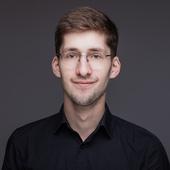
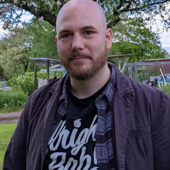
Florimond Gueniat
Associate Professor in Mechanical Engineering, Birmingham City University
Less ![]()
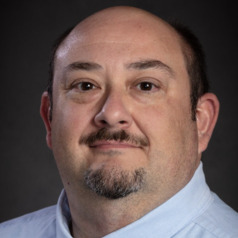
Floyd W. Shockley
Entomologist and Collections Manager, Smithsonian Institution
I oversee all aspects of collection management, logistics, purchasing and property management for the Department of Entomology, providing oversight of the National Insect Collection (100,000+ type specimens, 35 million+ specimens) and interacting with staff from the three agencies and 4 units that comprise the Combined Entomology Department (SI, USDA-SEL, USDA-APHIS, and DoD-WRBU).
My research interests focus on the taxonomy and systematics of fungus feeding beetles. I reconstruct phylogenetic relationships of Endomychidae using cladistics, likelihood and Bayesian techniques incorporating both morphological and molecular evidence, and use the resulting evolutionary hypotheses to explore patterns of change in physical, behavioral, and ecological characteristics.
Less ![]()

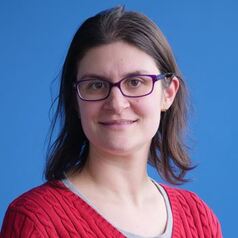
Foteini Stavropoulou
Senior Lecturer in Operations and Supply Chain Management, Liverpool John Moores University
Foteini holds a BSc in Management Science and Technology (2006) and a PhD in Operational Research (2012) from the Athens University of Economics and Business. She also holds an MSc/DIC in Computing Science (2008) from Imperial College London. Her research interests include modelling and optimisation in transport, logistics and operations and supply chain management.
Languages
Greek, Modern (1453-)
Degrees
2012, Athens University of Economics and Business, Greece, PhD
2008, Imperial College London, United Kingdom, MSc
2006, Athens University of Economics and Business, Greece, BSc (Hons)
Certifications
Liverpool John Moores University, United Kingdom, Postgraduate Certificate in Learning and Teaching in Higher Education
Academic appointments
Senior Lecturer in Operations & Supply Chain Management, Liverpool Business School, Liverpool John Moores University, 2013 - present
Less ![]()
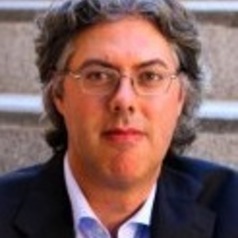
Frabizio Carmignani
Current teaching areas:
- Macroeconomics, Quantitative methods
Research expertise :
- Economic growth and macroeconomics
- The macroeconomics of natural resource abundance
- Macroeconomic analysis of aid for health
- Development economics
- The economics of civil conflict and post-conflict countries
- Panel models and systems of equations
Less ![]()
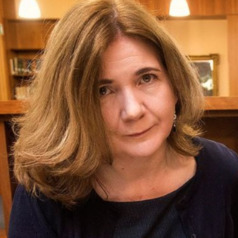
Fran Brearton
Professor of Modern Poetry, School of Arts, English and Languages, Queen's University Belfast
I teach primarily in the areas of 19th and 20th century Irish literature, modern poetry - particularly contemporary Irish and British poetry - and modernist literature. I’ve supervised research students in the areas of 19th & 20th century Irish literature, 20th-century British, Irish, and American poetry, and 20th-century British fiction, and welcome proposals in the areas of modern British and Irish literature. I also supervise the critical component of creative writing PhDs (fiction and poetry). I convene and teach on the MA in Poetry: Creativity and Criticism, and also on the MA in English Literary Studies.
My research interests are primarily in British and Irish Poetry of the 20th and 21st centuries, and in the literature and culture of the First World War, literary modernism, and war writing throughout the 20th century. I also have a particular interest in the work of Robert Graves – his poetry, historical fiction, criticism, and autobiographical writings.
My first book was a study of the effects of the First World War on 20th-century Irish poetry; more recently, I co-edited (with Alan Gillis) The Oxford Handbook of Modern Irish Poetry. I've just edited a new edition of Robert Graves's First World War memoir, Good-bye to All That, for Penguin Classics (2014) and am currently working on a study of Graves's writings.
Less ![]()
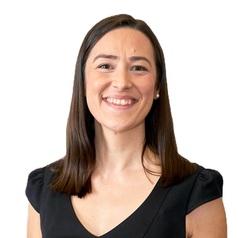
Frances Doyle
Senior Lecturer in Clinical Psychology, Western Sydney University
I am a researcher, educator, and clinical psychologist focussed on improving child and family wellbeing. I have completed a PhD in Psychology, Master of Clinical Psychology, Bachelor of Arts - Psychology (Hons 1), and Bachelor of Business Administration.
Less ![]()
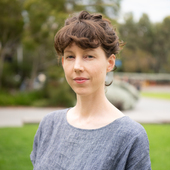
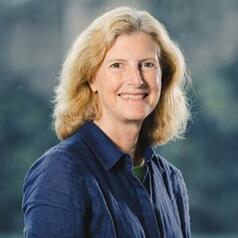
Frances Fowle
Personal Chair of Nineteenth-Century Art, History of Art, The University of Edinburgh
Frances has a joint post with the University of Edinburgh and the National Galleries of Scotland. She has curated numerous international exhibitions and her main area of specialism is French and Scottish nineteenth-century art, with an emphasis on collecting, the art market, national identity, cultural revival and artistic networks.
Frances is Chair of the Association for Art History and Senior Trustee of the Burrell Collection in Glasgow. She is on the Board of the International Art Market Studies Association (TIAMSA) and is patron of the Paisley Museum Reimagined cultural renovation project. She is the 2022 Van Gogh Museum Visiting Fellow and is on the advisory Board of the Van Gogh Worldwide project, a digital platform for all works by Vincent Van Gogh. She is also a Group Leader for Art UK and is on the Editorial Board of the Journal of the Scottish Society for Art History.
She began her career working for Sotheby's auctioneers and, briefly, as an arts journalist. She gained her PhD at the University of Edinburgh in 1994 and has taught at the universities of Aberdeen, Glasgow and at Edinburgh College of Art. She worked in the curatorial department at Tate Britain before joining the National Galleries of Scotland in 2001. She was appointed to her current post in 2005.
Less ![]()
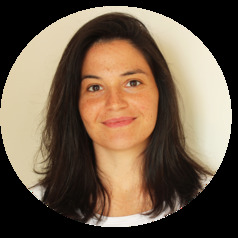
Francesca Farrington
Lecturer in Commercial Law, University of Aberdeen
Dr Francesca Farrington is a Lecturer of Commercial Law at the University of Aberdeen. Her research analyses the relationship between legal reforms and development outcomes from a global and pluralist legal perspective by adopting critical approaches to law and economics, comparative law, and jurisprudence. In addition, her research investigates the substantive and procedural barriers to the attainment of justice, with especial emphasis on transnational proceedings involving power asymmetries which may shield corporations from scrutiny. She is a member of the Anti-SLAPPs Research Hub at the University of Aberdeen and the Rule of Law and Economic Development (ROLED) Working Group at McGill University. She was recently appointed as an Associate on the POPBACK project (funded by the NORFACE network) which examines democratic backsliding and the crisis of the rule of law in the European Union from a multi-disciplinary perspective.
Less ![]()
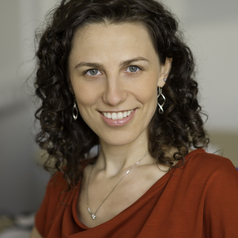
Francesca Gino
Professor of Business Administration, Harvard Business School
Francesca Gino is a professor of business administration in the Negotiation, Organizations & Markets Unit at Harvard Business School. She is also formally affiliated with the Program on Negotiation at Harvard Law School, with the Mind, Brain, Behavior Initiative at Harvard, and with the Behavioral Insight Group at Harvard Kennedy School. Professor Gino teaches Decision Making and Negotiation in the MBA elective curriculum and in Executive Education programs at the School. She co-chairs an HBS Executive Education program on applying behavioral economics to organizational problems. She also teaches a PhD course on Behavioral Approaches to Decision Making and a PhD course on Experimental Methods.
Less ![]()
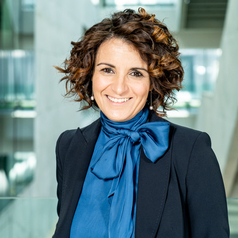
Francesca Lecci
Associate Professor of Practice in Government, Health and Not for Profit, Bocconi University
I am an Associate Professor of Practice in Government, Health and Not for Profit at SDA Bocconi School of Management and the coordinator of the research area on Healthcare Management at CeRGAS (the Centre for reasearch on health and social care management, economics and policy of Bocconi University)
Less ![]()
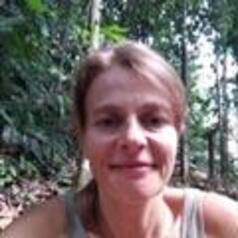
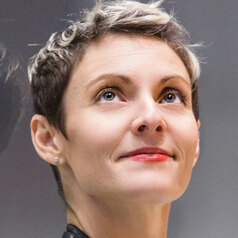
Francesca Perugia
Senior Lecturer, School of Design and the Built Environment, Curtin University
Francesca Perugia is an early career housing researcher with extensive knowledge of the housing sector in Australia and internationally. In her academic work, Francesca brings the knowledge and leadership skills gained through research and advocacy in the not-for-profit sectors at a European level, the professional knowledge of the construction industry, and a deep understanding of institutional and governmental processes, ethic, directions, and priorities relative to policy development and delivery of complex affordable housing projects.
Less ![]()

Francesca Sidoti
Postdoctoral Research Associate, University of Technology Sydney
Francesca Sidoti is a cultural studies and cultural geography scholar, who specialises in place-oriented, qualitative research across academic and applied settings. She is particularly interested in how places shape and enduringly affect people’s experience, including how this manifests in the digital space. Francesca has worked as a research consultant since 2017 and led and managed projects for government agencies, NGOs, and universities.
Less ![]()
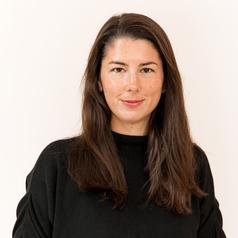
Francesca Stocco
PhD Researcher, Art Market, Nottingham Trent University
Francesca Stocco is a PhD researcher at Nottingham Trent University. Her research specialises on the sociology of the art market and investigates the resurgence of textiles and fibre art in the private sector. On the side, she runs the editorial project ‘Filanda n.18’ that explores textiles’ cultural narratives. Prior to her PhD, she worked in marketing for Swarovski in Austria and in management consulting for Innosight in Switzerland. She holds a master’s degree in management from EDHEC Business School, France/Singapore, and a bachelor’s degree in economics from Ca’ Foscari, University of Venice, Italy.
Less ![]()
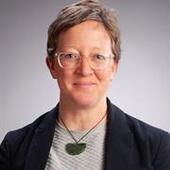
Francesca Storey
Deputy Director Te Tātai Hauora o Hine – National Centre for Women’s Health Research Aotearoa, Te Herenga Waka — Victoria University of Wellington
Less ![]()
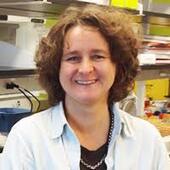
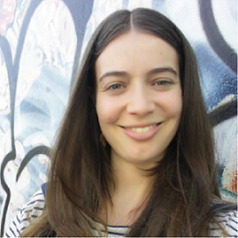
Francesca Teltscher Taylor
Research Associate and Teaching Associate in European Languages (German Studies), Monash University
Less ![]()
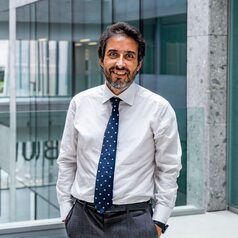
Francesco Billari
Professor of Demography, Bocconi University
I am Professor of Demography and Rector of Bocconi University, Milan. Previously, I worked at the University of Oxford (Department of Sociology, where I also served as Head of Department) and Nuffield College (where he was a Professorial Fellow), and at the Max Planck Institute for Demographic Research (Head of the Independent Research Group on the Demography of Early Adulthood). I also served as President and Secretary-General/Treasurer of the European Association for Population Studies, and I received the 'Clogg Award' from the Population Association of America in 2012. I am a Fellow of the British Academy, and an affiliate of the Population Studies Center, University of Pennsylvania.
Less ![]()
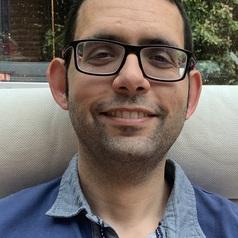
Francesco Crea
Professor (Cancer Pharmacology), The Open University
I am an MD PhD with extensive experience in world-leading cancer research centres (NCI-USA, BC Cancer Agency). My lab at the Open University investigates the role of long non-coding RNAs in cancer progression (http://www.open.ac.uk/people/fc3298).
At the Open University, I also teach Immunology, Physiology and Cell Biology.
Less ![]()
- Market Data



















